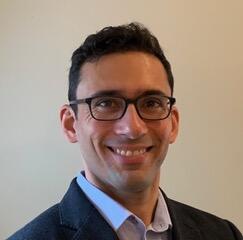Director’s Series: Science, Technology and Policy: Biological Weapons and Nuclear Use
For fall quarter 2021, CISAC will be hosting hybrid events. Many events will offer limited-capacity in-person attendance for Stanford faculty, staff, fellows, visiting scholars, and students in accordance with Stanford’s health and safety guidelines, and be open to the public online via Zoom. All CISAC events are scheduled using the Pacific Time Zone.
REGISTRATION
Only those with an active Stanford ID with access to William J Perry Conference Room in Encina Hall may attend in person. This event will not be live-streamed.
About the Event: In January 2017 and again during his presidential campaign, then-Vice President Biden said that “I believe that the sole purpose of the U.S. nuclear arsenal should be deterring—and, if necessary, retaliating against—a nuclear attack.” The Biden Administration is now undertaking its Nuclear Posture Review (NPR), in which it is possible that the United States would, for the first time, formally adopt such a “sole purpose” or perhaps even “no first use” policy for its nuclear weapons. Yet some former government officials, as well as press accounts, have publicly reported that the possibility of a biological weapons attack that might cause casualties comparable to a nuclear attack blocked the adoption of a no-first-use or a sole-purpose policy in previous administrations’ NPRs. Should it do so again? I will present a technical and policy analysis of this question, with the aspiration of helping to bring systematic attention to this issue in the ongoing Nuclear Posture Review.
About the Speaker: Christopher Chyba is a professor of astrophysical sciences and international affairs at Princeton University, and past director of the Program on Science and Global Security. As an associate professor of geological sciences at Stanford University before coming to Princeton, he co-directed the Center for International Security and Cooperation and held the Sagan Chair at the SETI Institute. He has been a Marshall Scholar and a MacArthur Fellow.
During President Clinton’s first term, Chyba served on the staffs of the National Security Council and Office of Science and Technology Policy at the White House, entering as a White House Fellow. He served for a decade as a member of the National Academy of Sciences' Committee on International Security and Arms Control, and on President Obama’s Council of Advisors on Science and Technology (PCAST) from April 2009 through January 2017, on which he co-chaired the working groups on antibiotic resistance and on biodefense. In late 2020 to early 2021, Chyba served on the national security and foreign policy team for the Biden-Harris transition. His current policy-relevant research focuses on possible pathways to nuclear weapons use (for the past two years, he has co-chaired a project of the American Academy of Arts and Sciences on this topic), nonproliferation and strategic arms control issues, and biodefense -- including as a member of the OPCAST pandemic response group.
Chyba's scientific research ranges across planetary science and exobiology, as well as work in classical electrodynamics. His published work has included dynamical modeling of the Neptune-Triton system, the role of impacts on the origin of life on Earth, the Tunguska atmospheric explosion and planetary defense, radar, seismic, and magnetometer sounding of Europa's ice shell, bioenergetic models for possible ecosystems on Europa, electromagnetic heating of planetary satellites, and planetary protection.
Only those with an active Stanford ID with access to William J Perry Conference Room in Encina Hall may attend in person. This event will not be livestreamed.








